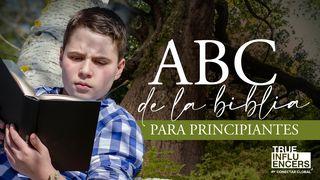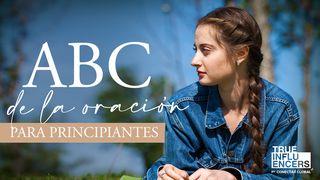Jesus In All Of LeviticusMuestra

What’s Happening?
The offerings have been outlined. The priests have been consecrated. God has filled the tabernacle with his presence. The last thing we read before turning to chapter 11 is about Nadab and Abihu’s death. They approached God in an unholy way. They were unclean before the Lord and bore their sin’s punishment.
So it makes sense, then, that the next section we come upon is how to distinguish between the clean and unclean. How could the rest of Israel avoid coming close to God while in the state of uncleanliness?
What is Cleanliness and Uncleanliness?
Before jumping into which animals were clean and unclean, it will be helpful to understand what these categories mean.
In the Hebrew mind, everything is either clean or unclean (See footnote 1). The default state of most things is clean. However, when something clean is polluted it must be either ritually cleansed or made to wait a prescribed period of time in order to become pure again.
There is a lot to unpack here, but simply put, if something is clean it means that it’s allowed to be in God’s presence. If something is unclean, it cannot be in God’s presence.
God says the unclean animals we read about in chapter 11 make a person unclean. If an Israelite interacts with one, they are ceremonially unclean until the next morning. Then they can bathe themselves and be clean once again.
Cleanliness is important for two reasons. First, because only that which is clean can come near God. Second, cleanliness is a picture of God’s set apart nature and perfection. By following the cleanliness codes, the people are showing that God is distinct and clean among the whole earth.
Clean and Unclean Animals
Now, you may have wondered why the people of Israel couldn’t eat pigs? Or, for that matter, why they couldn’t eat a whole list of different animals from camels to catfish?
Without giving a reason, God declares certain animals clean and other animals unclean. Clean animals could be eaten, while unclean animals must be avoided.
But why this distinction? Why this separation between clean and unclean animals?
It’s easy to get caught up in trying to figure out why certain animals made the cut and others didn’t. But the Bible never goes into detail about how God made these decisions. So we shouldn’t either.
What the Bible does go into great detail about is what this separation of clean and unclean animals represented in the Old Testament and how and why it was abolished in the New Testament.
The issue was symbolic. Israel had been separated from the nations simply by God choosing them. They were clean, while many other nations were called unclean. In the same way, God chose some animals who would be clean and others that would be unclean. God made the separation.
Israel’s diet was a physical representation of their separation as God’s people. They ate clean animals. They were clean. The nations ate unclean animals. They were unclean. They were God’s chosen people, eating God’s chosen food. Symbolically, the point was, “You are what you eat.”
Where is Jesus?
But something very unique happens to these laws when Jesus enters the scene.
Jesus Makes Us Clean
Jesus abolished the distinction between clean and unclean animals. Through a series of teachings and visions, God overturned these food laws (Mat. 15:11; Acts 10:15). Now no animal is unclean or clean.
But why would Jesus abolish this food law? Doesn’t that change the law?
The answer becomes clear when we understand the clean and unclean animals listed in Leviticus as symbols for Israel’s separation from the unclean nations.
Under the new covenant Jesus has made with the world, all people can be made clean through the cleansing provided by his blood. Therefore, the good news of Jesus’ sacrifice isn’t just for one people group, but for all people.
That’s what’s amazing about the Lord’s Supper. No one who believes in Jesus is restricted from the meal. All nations can gather at this table with Jesus because Jesus can make anyone clean. By partaking of Christ’s cleanliness we become clean like Christ. In the best way possible, in Christ, we are what we eat.
See For Yourself
I pray the Holy Spirit would give you eyes to see the God who calls people out from their sin and from the world to set them apart. And that you would see Jesus as the one who has made this calling possible for anyone from any nation to come to him, feast on his sacrifice, and be made clean.
(1) “Everything that is not holy is common. Common things divide into two groups, the clean and the unclean. Clean things become holy, when they are sanctified. But unclean objects cannot be sanctified. Clean things can be made unclean, if they are polluted. Finally, holy items may be defiled and become common, even polluted, luted, and therefore unclean.”
Gordon J. Wenham. The Book of Leviticus (New International Commentary on the Old Testament) (Kindle Locations 251-253). Kindle Edition.
Escritura
Acerca de este Plan

How can we live in God’s presence? We find the answer in the book of Leviticus. If we are ever to dwell with God, we must become like God; we must be holy as he is holy. That is why Jesus took on our sins to make us holy like him. This plan will show you Jesus in every passage of Leviticus to more clearly see this beautiful truth.
More
Planes relacionados

¡Levántate! 7 Claves Para Levantarte Y Seguir.

Testigos Del Milagro: La Primera Navidad

Que El Mundo Crea

Confiando en Los Propósitos De Dios

ABC De La Biblia Para Principiantes

ABC De La Oración ... Para Principiantes.

La Gracia. 7 Claves Para Vivir en Plenitud.
